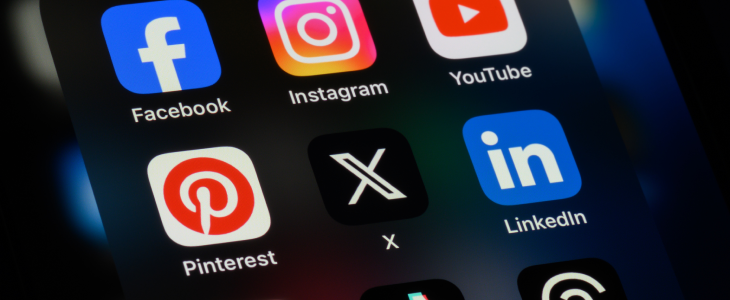Most of us scroll through Facebook or Instagram the moment we wake up: we check a few stories, maybe post a selfie, and then get on with our day. It’s practically a reflex. But if you’re pursuing a personal injury claim in North Dakota, those everyday habits can backfire—big time. A single photo at a family gathering or a casual status update about “feeling better” could be spun into “proof” that you’re exaggerating injuries.
Keep reading to find out what our North Dakota personal injury attorneys have to say about social media and your personal injury case.
When Your Online Life Becomes Evidence
I once saw an insurance attorney whip out a client’s social media photos during a deposition. The client had posted a snapshot of herself on a short hike with friends. She insisted she was in pain the whole time, but to the opposing side, that single image of her smiling on a trail was enough to question the severity of her injuries. It was eye-opening to watch how quickly an innocent post could be twisted against someone.
Insurance companies and defense lawyers are more tech-savvy than people realize. Even if you’ve set your accounts to private, they can often find ways to view your content—through mutual connections, subpoenas, or old screenshots that never truly disappear.
The Pitfalls of “Harmless” Posts
- A quick status update: Maybe you wrote, “Starting to feel normal again!” because you had a decent day. That line can be used to argue you’ve fully recovered.
- Fun party pics: Everyone loves a good group photo, but if you’re shown dancing or laughing, an insurance company might interpret it as evidence you’re not as injured as you claim.
- Friendly comments: Even a simple “I’m hanging in there” could be twisted to minimize your suffering.
You might think you’re just keeping loved ones updated. But once you enter the legal arena, every word and picture can be scrutinized.
Deletion Is Not a “Quick Fix”
You might be thinking, “I’ll just delete a few posts and move on.” Unfortunately, that can open a whole new can of worms. In some cases, it’s considered tampering with evidence. Plus, defense attorneys often screenshot or archive posts before you’ve even thought to take them down. If it’s out there once, assume it’s out there for good.
Be Mindful of Friends & Family
Even if you stop posting, your friends or relatives might still share photos of you. They could tag you in a post about a concert or a weekend getaway. That might look innocent to them, but it can be a goldmine for an insurance adjuster. If you’re in the midst of a personal injury case, it’s wise to mention to your close network that you’d prefer to stay off their social media feeds—for your own protection.
Taking Control of Your Online Presence
If you’re currently pursuing an injury claim, consider these steps:
- Limit what you share: It’s safest to take a total break from posting until your case is resolved.
- Review privacy settings: Make your accounts private, though remember there’s no guarantee it keeps out a determined investigator.
- Talk to your inner circle: Ask friends and family to avoid tagging or mentioning you while your case is active.
- Avoid discussing case details online: Never discuss your case, accident, or medical progress on social media. It can be taken out of context in a heartbeat.
How We Can Help at Pringle & Herigstad, P.C.
Navigating a personal injury claim can feel overwhelming—especially when you realize how easily your own posts can be used against you. Our attorneys at Pringle & Herigstad, P.C. have guided clients from Grand Forks to Minot (and everywhere in between) through these very issues. We’ll walk you through best practices for social media, help counter any attempts to discredit your case, and fight for the compensation you deserve.
Ready to Talk About Your Case?
If you’ve been injured and are worried about how your online presence could hurt your claim, let’s chat. We’ll review your situation and help you take the right steps to protect yourself—both online and in court.
Call Pringle & Herigstad, P.C. now for a free consultation. We’re here to make sure that a Facebook post doesn’t stand between you and a fair recovery.
